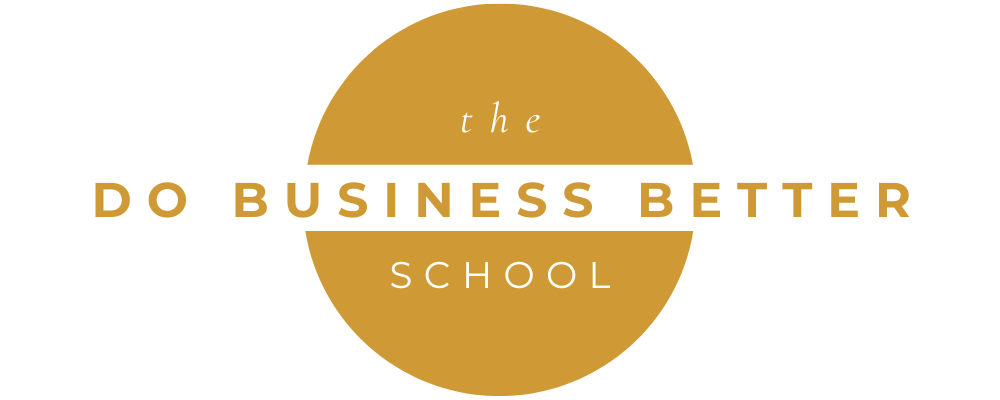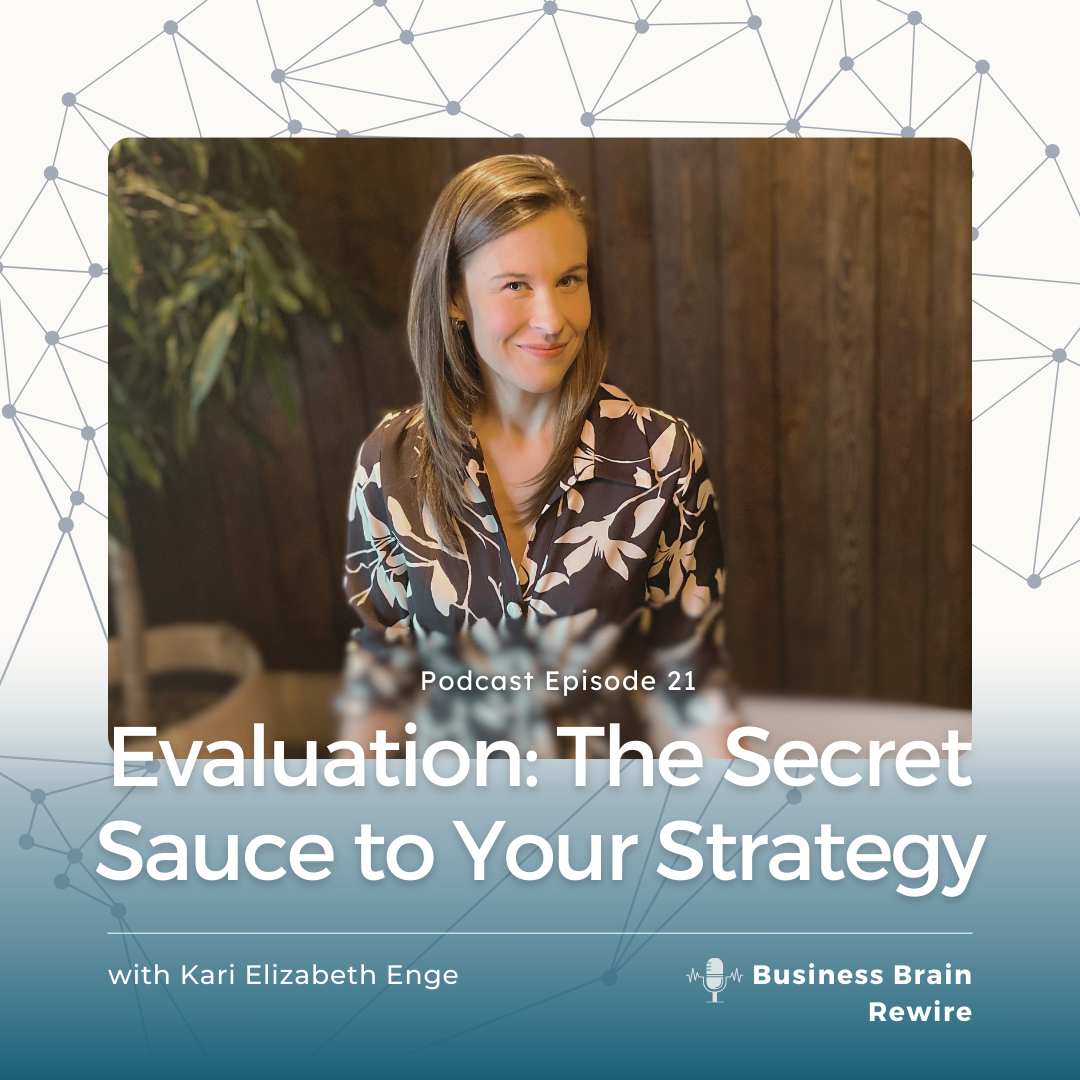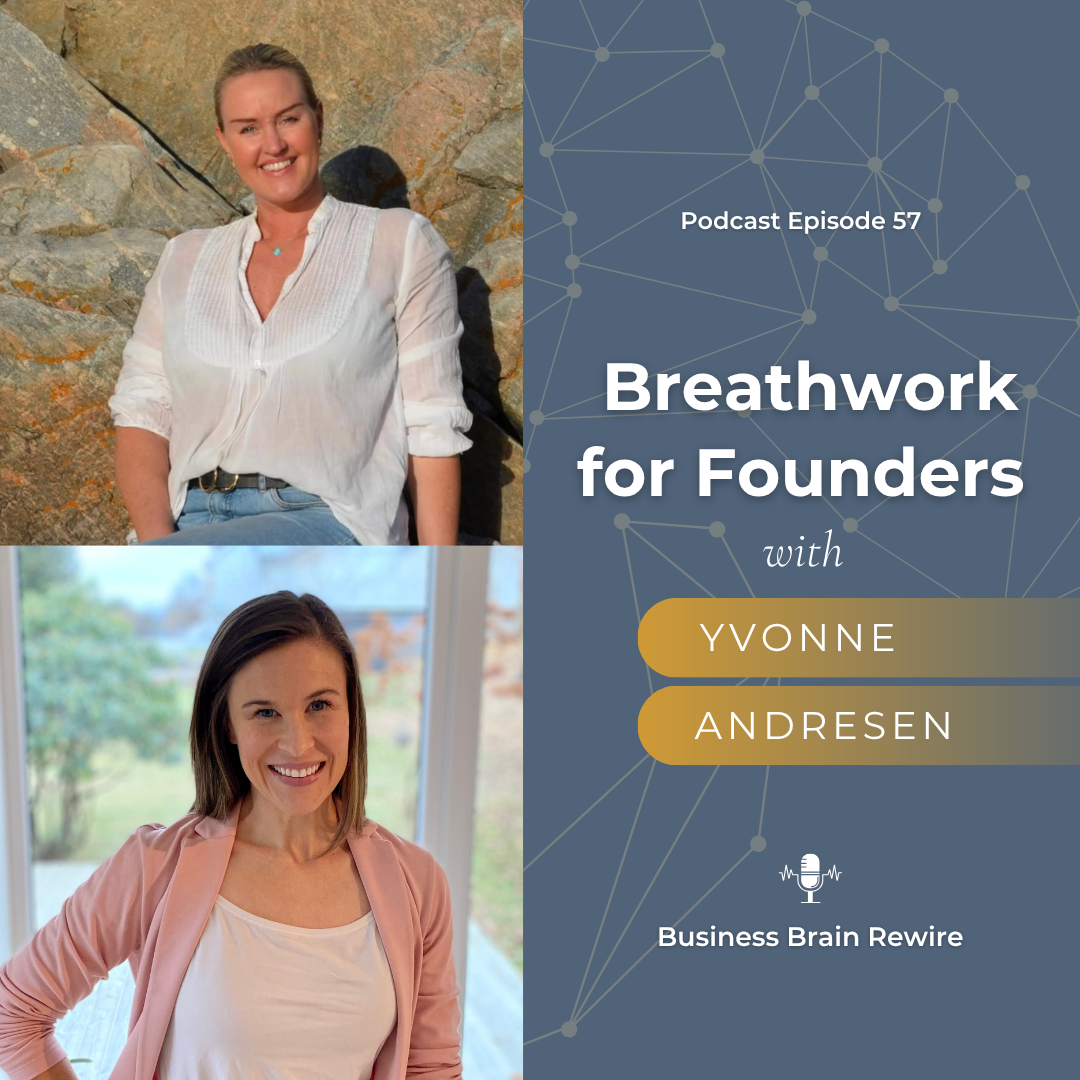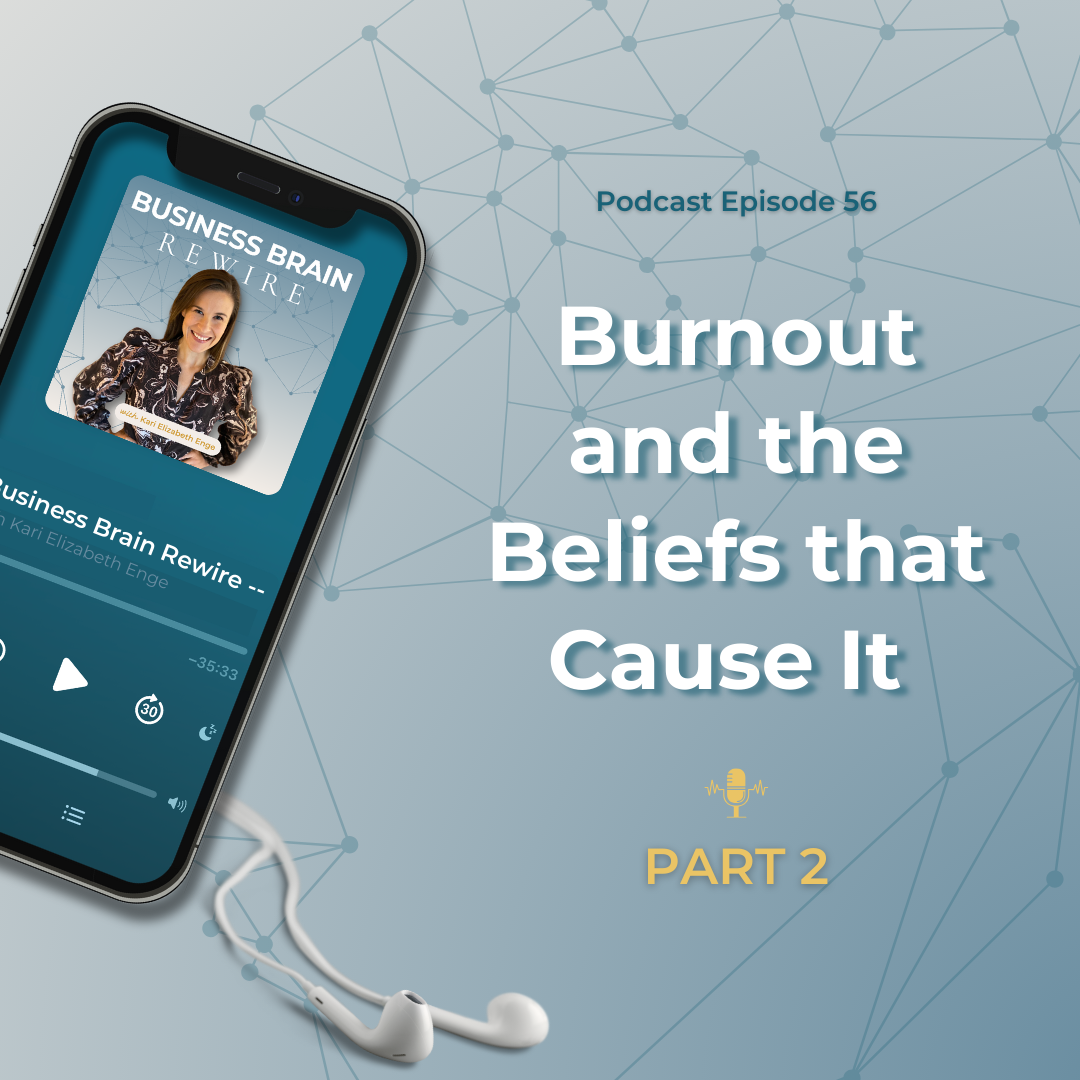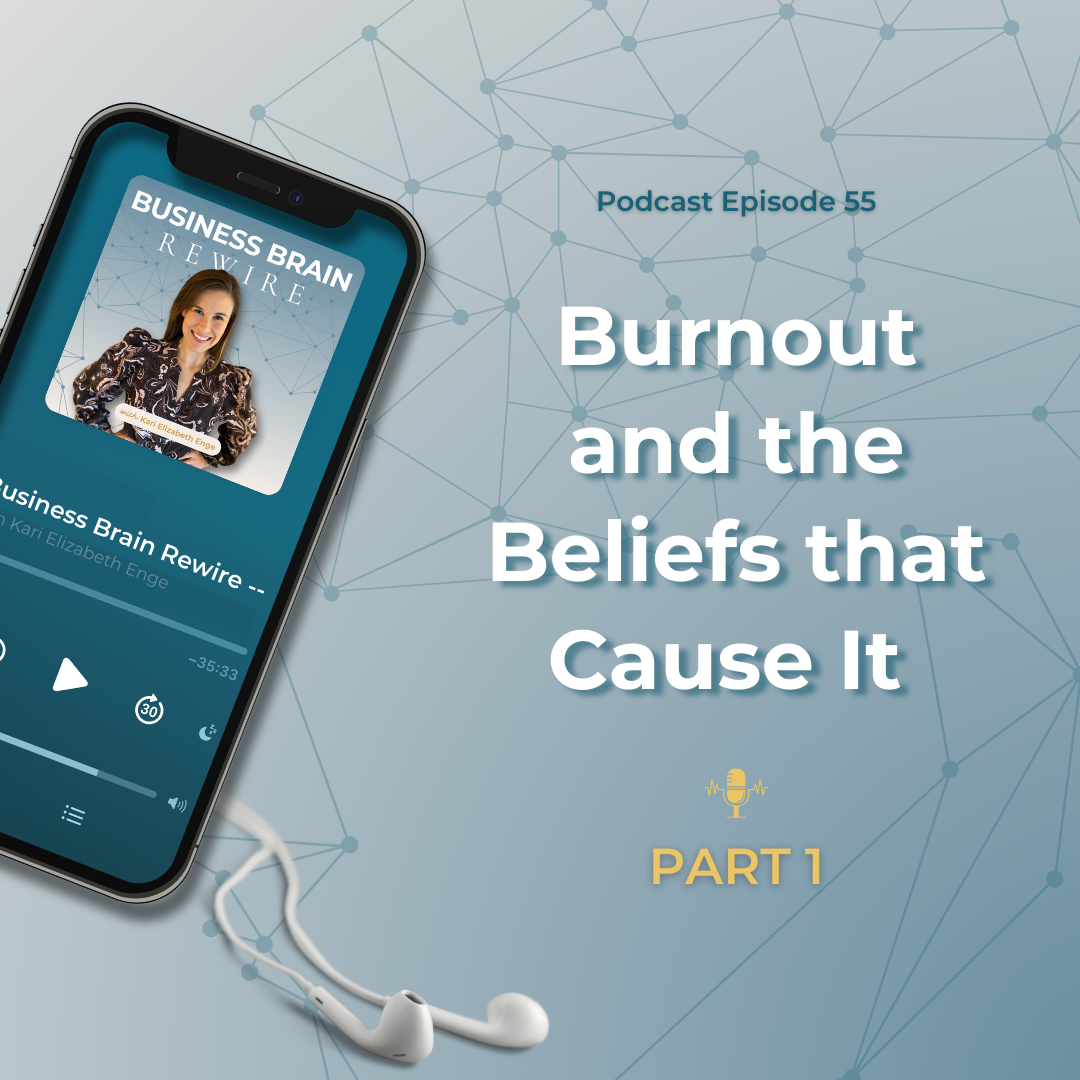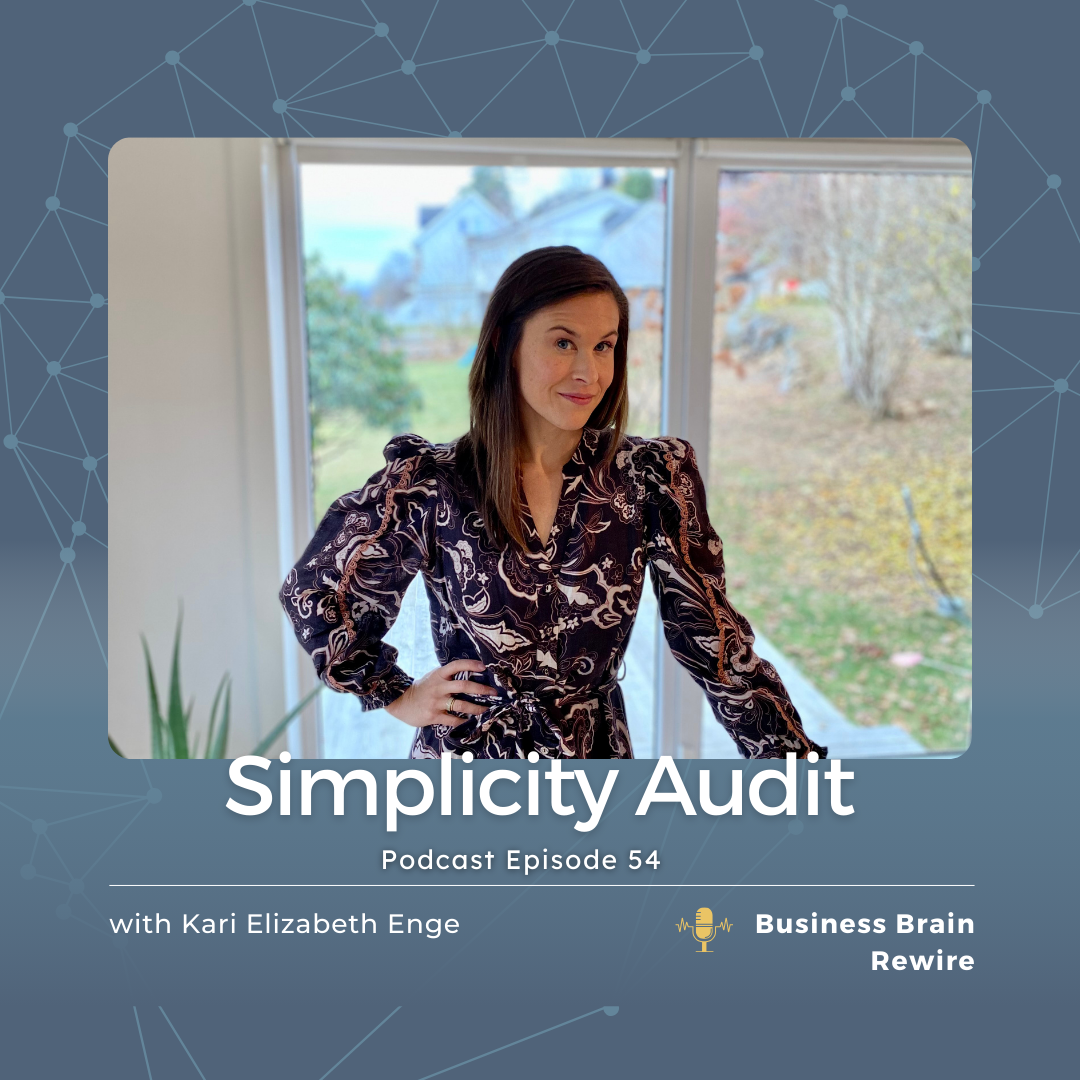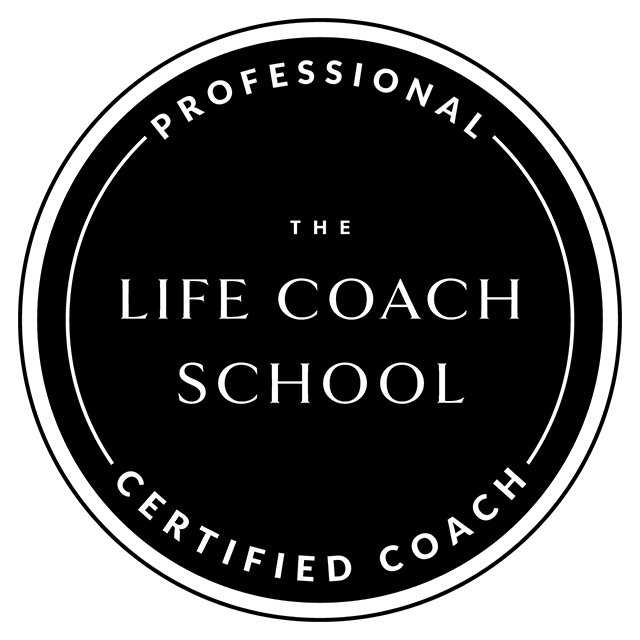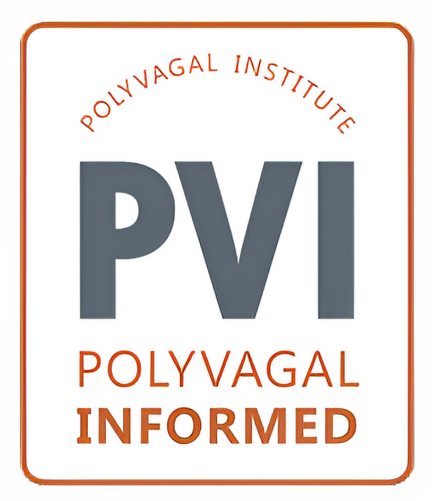This process helps you avoid spinning your wheels and enables better decision-making.
It’s a simple yet powerful goal-achievement framework that ensures you always know what to focus on and where to go next. And evaluation, is like the secret sauce of this system.
It’s crucial to have a structured evaluation process because it informs your next steps, helping you tweak and optimize your strategies.
To make your evaluations effective, you have to start by getting into a neutral, objective mindset. Stress and negative emotions will cloud your judgment. This is why one of the things we focus alot on in Simply Sustainable is tapping into a CEO mindset.
In this episode, I teach exactly how to answer these questions using the most effective part of your brain (your strategic prefrontal cortex, not your survival-focused amygdala).
So in this episode, I also share how to simplify your plans coming out of each evaluation so that you are only focused on a few things. This “essentialist approach” compounds growth more effectively than spreading yourself thin and getting bogged down in a busy to-do list.
This cyclical process—making decisions, implementing them, and evaluating the results—ensures continuous improvement and growth.
To uplevel your approach as a founder, tune into this episode. And don’t forget to join the waitlist for Simply Sustainable. Happy evaluating!
Increase sales and lower stress using DBB’s proven CEO Goal Achievement System by learning more about the Simply Sustainable coaching program for purpose-driven founders.
[00:00:00] Hey founder, I want to let you in on a little secret before we get started in today’s episode. So pull over, turn off the car, stop cooking dinner, get out of the shower, whatever you need to do, grab a pen and write down. Just scribble a little note, Carrie’s new program, Simply Sustainable, launching September 10th.
[00:01:08] And then make sure you put a little asterisk by that and write September 10th through September 20th, promotion for founding members. What that means is I created a course and a group coaching program for you and I cannot wait for you to be there and because of that I have Created a special bonus and a gift for you when you sign up in the first couple days The group program is open So if you want more information if you can’t wait to join or if you’re just curious come join the waitlist This is very important so that you don’t miss out on that promotional period You Because listen, if you email me a couple of days later and say you missed it, I’m going to say, here’s the link.
[00:01:54] You can still buy the course in the group program, but not for the promotional price. All right. So get on the wait list. You can find me on Instagram, just at DoBusinessBetterSchool, and then click the little link up at the top of my profile, add your email, and you’ll get on that waitlist. I’ll also link up an option in the show notes, so you can go over to the website, click on the show notes, and there will be an option there to join. I cannot wait to see you there. All right, that’s all I’m going to say for now. Let’s dive into today’s episode.
[00:02:29] All right, founders. How are you doing? We’ve been on quite roll the last couple of weeks as I’ve just been peeling back the curtain on Simply Sustainable and talking about some of the core concepts that I teach inside this new program, launching soon. Today, I’ve got a good one for you. I’m going to try to keep it really short, but I just love today’s topic so much that let’s see how long it goes for.
[00:02:53] I’m really going to try to condense it down. Today is about evaluation. And I think evaluation is the secret sauce for business growth and what most founders are overlooking. I want to make sure that as many purpose-driven founders as possible know exactly how to evaluate and how to do it well, so that instead of spinning their wheels or struggling or scratching their head on how they’re going to reach that next, a business school of theirs. That they know exactly what to do at every turn and can build momentum because they are evaluating, and that evaluation is structured in such a way that it really walks them to their goal with a lot of ease and enjoyment and organization. That is what evaluation can do for you, my friend. So today we are going to talk all about this skillset. This skillset is one of the three core CEO skillsets that I teach inside simply sustainable.
[00:03:55] And these three skill sets form what I call the C E O system. So the first skillset is decision-making. The second one is implementation and the third one is evaluation. And in order to grow your business, we just rinse and repeat these three skillsets. We make decisions. We implement, we evaluate, we make decisions.
[00:04:19] We implement and evaluate. And that evaluation is how, you know, what you’re going to do for the next weeks months. In order to tweak those strategies, to get them working better and better. So that evaluation is the tool in which you can make better decisions. That’s why this forms sort of a cycle where you just rinse and repeat over and over and over again. And this CEO system really creates a very organized structure and container so that you, as a founder, always know what you should be doing and what you should be focusing on.
[00:04:55] Should either be sitting down to do a CEO day to strategize and make decisions based on an actual evaluation, or you should be implementing. And so today let’s dive into, what do you actually do when you evaluate, because. If you’re not evaluating well and you don’t know how to actually carry out that process in a really objective strategic way, then it’s kind of not worth your time, right? You spend a CEO day and you feel more confused than when you started or you feel more overwhelmed about the action plan than when you started. And a good CEO day evaluation should leave you feeling really clear on what you’re going to do. And your action plan should feel really doable and simple. Like you’re excited to jump into it. That’s what you should feel like.
[00:05:48] So today I want to walk you through how you would do an evaluation so you can get started because I don’t think that this is a nice to have. I don’t think through my experience that it’s something you should start to do when you’re more organized. I don’t think it should be something that you do after you’ve started your business and things are flowing and you’re out of that business model development phase so really be on to yourself. If you’re listening to this episode thinking, oh yeah, that’s something that I should really do kind of like that gym membership that you never get to. This is absolutely crucial. You shouldn’t ever be implementing anything that you’re not evaluating.
[00:06:32] It just does not make any sense because it means that you are doing something for too long before you’re optimizing it, meaning that you’re wasting time and money and you could be doing it better than you are now. And the optimizations that you might find or discover through an evaluation are not going to be more time consuming or more difficult.
[00:06:55] In fact, an evaluation can, should help you to simplify and continue to be more effective. So by carving out, literally five minutes, 30 minutes, an hour, tops, you could really make evaluation really short if you need to, you can become so much more strategic than you are now. So resist the urge to say, don’t have time for this because it’s fundamental to business, so whatever you’re implementing make sure you are evaluating.
[00:07:25] So now I want to get into what an actual evaluation looks like. And evaluation is really simple. Okay. You’re going to sit down to look at whatever strategy you’re doing and you’re first and foremost, going to get in the right head space before you start. To actually dive into what’s working and what’s not all right. The reason why you want to spend a little time getting your mindset in check is because. If you go into an evaluation with a really negative emotion. You’re going to come up with a really terrible idea for what you should try the next. Because your brain cannot access the most simple, strategic best ideas when it’s in the stress response.
[00:08:16] When it’s in fight flight and freeze. And remember your brain can easily get the stress response turned on if there is a potential threat. So if you’re thinking, oh my gosh, this strategy is not working. Or how do we get this working? Or you’re feeling overwhelmed or pressured or confused or. Any of those types of emotions. You will not come up with the best strategies.
[00:08:38] So the goal of the mindset work before you actually look at what’s happening and what you might want to try different. The goal is to get to a very neutral and objective place. So that you access the prefrontal cortex. You get out of that survival mode and into creative innovation mode. So we want to slow down at the beginning of our CEO day, slow down at the beginning of our evaluation and tap into really regulating emotions. So that we turn on our brain. One of the best ways I think we can do that is to use gratitude. Gratitude is just such a helpful emotion that just gets you out of. All of the urgency and busy-ness and overwhelm and frustration that you might have. So you want to use some journal prompts or some mindset tools?
[00:09:35] Like I teach my founders in simply sustainable. To drop into gratitude and to get to a very neutral objective place where you’re not feeling a lot of drama about what’s going on related to the thing you’re about to evaluate. So that’s the first thing you want to be open, curious like a scientist. Kind of having fun, looking at what’s going on. Then you’re going to ask just a couple of questions. First, you’re going to ask what worked, what is working in order to know what’s working.
[00:10:10] You have to have data. And so that’s something that you want to make a goal of yours if you don’t have it. To figure out how you can actually track what is working in the business. It’s easy to stop doing something that’s working. If you’re not paying attention. And I’ve done this a couple of times in my business where. I just let my brain, my bad judgment, or ,just like a random impulse idea take over and I changed what I was doing. And in fact, what I had been doing was really working. I just wasn’t paying attention to the data to know it was working. So you want to make sure that you know how to track what’s happening. You don’t need to have lots of KPIs, lots of data points. That’s just going to create what I call KPI chaos.
[00:10:57] You just want to be focused on a couple of different stats, a couple of different numbers to know what’s working and what’s not. It can be so simple. It can literally be, this is the amount of people I met and talked to. This is the amount of people that I continued the conversation with. This is the amount of people who said, yes, this is the percentage that said no. That’s just a very basic example. It’s going to really vary on whether or not you’re talking about a sales and marketing strategy or an operational strategy, but you get my gist. So you want to be really paying attention to what worked so you don’t change it because we really don’t want to change what’s working. That’s the definition of reinventing the wheel and I’m guessing you don’t want to do that.
[00:11:43] Once you know what is working really well, you can define what could work better. And again, you’re just going to use data to really look at what are the things that I think I could optimize here. Now, when you ask this question, you want to make sure that you don’t drop into that frustration or drop into those thoughts of like “this isn’t working.”
[00:12:04] You don’t want to generate frustration here. You just want to see where you are and where you’d like to be moving forward to just optimize it a little bit. The next thing you want to do is you want to just ask, like, why do I think this didn’t work as well as I would like it to, you’re literally just going to make a hypothesis.
[00:12:25] You’re going to let your brain come up with three theories of why this could be happening. And when you are doing an evaluation from this really objective, curious, almost fun way, your brain will come up with really great theories. You don’t have to crunch and really analyze and work hard in an evaluation.
[00:12:45] Your brain’s pretty smart. Let it just come up with the three theories that it thinks it is. Then you’re going to decide which one you’re going to try in order to optimize further. Literally, you’re just going to say” what are the three theories?” Let’s pick one. Let’s make the change. Let’s make that adjustment. And then let’s go implement it. And we’re only going to implement it for a certain period of time before we go and evaluate it again.
[00:13:10] And if it didn’t work better, we’re just gonna make a hypothesis again and try to adjust it and optimize it further. So you’re never really making decisions that are going to apply for like forever in your business. We’re going to take the pressure off of some of these tweaks that we’re making. And we’re just going to try to tweak it and run a test and then go from there. One of the things that I think gets founders stuck with decision making is that they put so much pressure on what is the right answer.
[00:13:41] And they’re thinking, and like trying to solve this problem, this puzzle in their brain, and trying to tell the future about what is the right answer? What’s the right formula. And we just can’t do that. We don’t have that superpower as humans. What we can do is we can make a very solid hypothesis and then go put it out in the marketplace and see what happens. And the only reason why that would not be a good strategy is if you are not evaluating. If you go and put that hypothesis out to the world, and then you just do, it for months without checking in to say what’s happening here.
[00:14:15] So by using evaluation and really looking at it objectively using data to then make an hypothesis and then getting straight back into implementation, you really take the guesswork out of continuing to improve your results. It’s over and over. Now, the last thing I want to say is that. This evaluation does take time and implementing these tweaks on a regular basis takes time.
[00:14:40] And so that’s why we want to reduce the amount of things you’re trying to solve for. And we want to reduce the complexity in your business. One of the reasons why I call my program simply sustainable is because it’s about simplifying the amount of things you’re doing in your business. Removing a lot of the strategies to focus in on just the ones that move the needle. And then to implement those and evaluate those consistently over and over again, to compound the growth behind them.
[00:15:10] So when you go into an evaluation, if you’ve got 10 things you’re trying to implement and evaluate all at one time, it’s going to get very chaotic. So before you start this like CEO day evaluation process that I’ve talked to you about today, you really might want to look at your business model and your marketing strategies and the things you’re trying to accomplish, and really cut a lot off that list.
[00:15:36] Maybe you just focus on one way to market and sell and you evaluate that and you tweak that and you really get that going before he had another way. Or maybe you just need to focus on one thing operationally right now. Evaluate it tweak it, really focus on it and then move on to the next operational item. What you focus on grows.
[00:15:57] So if you’ve got too much going on and you can’t really focus in on them, none of them are going to grow. But if you’ve only got a couple of things and you can really mentally and emotionally spend more bandwidth on those than the amount that you can accomplish in a short period of time, actually expanse. All right, have a wonderful week.
[00:16:16] Keep serving the world, making sales and making time for self care. And remember, if you want to learn how to decision-make, implement and evaluate like a true CEO so that you can grow your business, make sure you get on that wait list for simply sustainable launching and just a couple of days. All right, I’ll see you soon.
[00:16:34] Take care.
Podcast: Play in new window | Download
